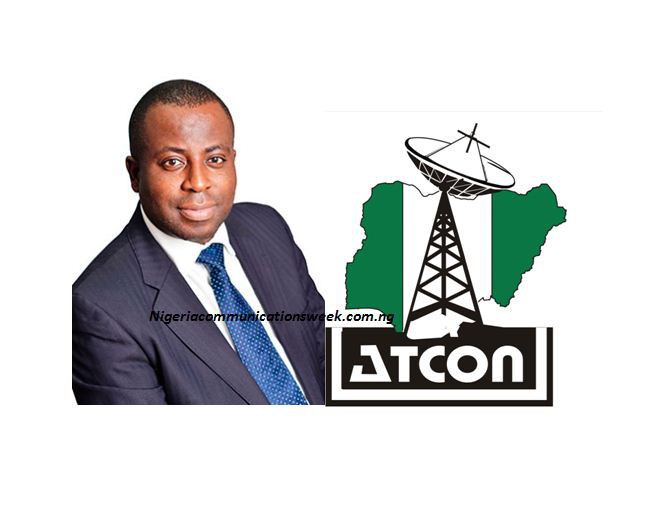Telecom
Nigeria, Others to Lag as Latest Mobile Technologies Adoption Soar

Nigeria and other sub Saharan African countries have been predicted to still retain second generation (2G) mobile technology in the next five years when other regions of the world would have migrated to newest technology, according to Ericsson Mobility report released recently.
Responding to its forecast that 2G will remain relevant in Nigeria and Sub-Saharan Africa, Nora Wahby, head of West Africa, Ericsson Middle East and Africa, who released the report in Lagos, attributed this to none availability of smartphones for fast technologies such as 3G, 4G and LTE in the region.
“Penetration of smartphones required for higher technologies are still low in this region and will continue for few more years to come. This has also affected subscription of 4G, LTE services,” she said.
Oladipo Raji, chief executive officer, InfraFocus Partners, explained that for 2G technology to remain relevant in Nigeria is not a matter of none availability of devices, but purchasing power of the subscribers as well as value and education.
“I think that the challenge is not that smartphones are not available but the resources to buy those high end devices are not there for many Nigerians, more so, some people in rural areas are not well educated on how to use some applications in these smartphones which to them does not add value to them,” he said.
On poor service delivery in the country, Raji attributed it to lack of investment on capacity. “In the last three years there has not been any investment on expansion of capacity by operators because of unhealthy business environment. Operators have rolled out 4G and LTE technologies, but no infrastructure to distribute it. Function of every government is to act as an enabler for businesses to thrive.
“In Nigeria, the case is different, there is no power, no cable operators, and infrastructure is not protected. The problems are obvious we just have to live with it,” he added.
Olusola Teniola, president, Association of Telecommunications Companies of Nigeria (ATCON) agreeing with the prediction said: “This is very true indeed and brings to reality the situation the industry finds itself after 10 years of a mobile voice telephony boom on the back of 2G network rollouts in sub Saharan Africa.
“2G represents the most viable and economical network for both rural and urban cities. The challenge still for Nigeria is to cover the 192 market gaps that 2G has failed to address. On the back of a pervasive 2G network subsequent upgrades to LTE/4G may be considered for true high speed broadband services,” he said.
On difficulty subscribers of GSM services in Nigeria face to enjoy 4G and LTE services, he said: “There are several challenges to the deployment of 4G in Nigeria. The first one is the lack of affordable 4G / LTE handsets that are available in Nigeria.
“Secondly, the lack of fiber to towers hosting current 4G BTS(s) this meant that true high speed broadband is not being truly experienced by consumers that have subscribed to those services on offer. Thirdly, lack of local content that is highly relevant has not created the demand that can justify the deployment of 4G beyond certain cities in Nigeria,” he added.
Responding to deployment of newest technology to less economic viable areas, Teniola said: “Unfortunately, Return On Investment is a key motivator for any operator to roll out services in a particular location. Beyond this it is the responsibility of Government to ensure universal service accessibility is achieved for those citizens residing in communities outside those attractive to commercial.
Telecom
MTN Nigeria Crowns Ayo Benzi Winner of Next Afrobeats Star

MTN Nigeria, in collaboration with ONErpm and Ultima Studios, has announced Ayodeji Benson, popularly known as Ayo Benzi, as the winner of the maiden edition of the Next Afrobeats Star reality show.

L-R: Onyinye Ikenna-Emeka, Chief Marketing Officer, MTN Nigeria; Ayodeji Benson, Winner, Next Afrobeats Star Reality Show (Season 1) and Emamoke Ogoro, General Manager, Brand and Communication, MTN Nigeria, at the grand finale of the Next Afrobeats Star Reality Show (Season 1), held at the Ultima Studios, Lekki, Lagos on Saturday, December 13, 2025.
The grand finale, held on Sunday night at Ultima Studios in Lekki, Lagos, marked the climax of a nationwide talent search that began in September with over 15,000 aspiring musicians.
After weeks of auditions, mentorship, and rigorous training, five finalists – Ayo Benzi, Dave Cash, Kaeko, Somto O’Laker, and Lucky Yay – battled for the top prize in a high-energy showcase of performance and artistry.
At the end of the electrifying contest, Ayo Benzi emerged victorious, securing a ₦150 million music deal. Dave Cash was named first runner-up with ₦100 million, while Kaeko, Somto O’Laker, and Lucky Yay received ₦75 million, ₦50 million, and ₦25 million respectively.
Throughout the season, contestants were mentored by leading Afrobeats producers Sarz, Puffy Tee, P Prime, and Andre Vibez. Benzi, who was part of Puffy Tee’s team, credited the mentorship programme for sharpening his craft and stage presence.
Speaking at the event, Onyinye Ikenna-Emeka, Chief Marketing Officer of MTN Nigeria, said the initiative reflects the company’s commitment to youth empowerment and cultural expression.
“The Next Afrobeats Star platform is about creating real opportunities for young Nigerians and giving their talent the structure, visibility, and support it deserves.
“Afrobeats continues to place Nigeria on the global cultural map, and MTN is proud to be enabling the next generation of artists who will take this sound even further,” she said.
She added that the finale was not just a competition but a celebration of growth and readiness for the global stage.
In his acceptance speech, Ayo Benzi described the victory as a defining moment in his career.
“A big thank you to MTN. From the audition days, the treatment MTN has given us has been amazing. God bless the brand,” he said.
The finale also featured guest performances by Afrobeats stars Iyanya and Bella Shmurda, adding glamour to the night and reinforcing the show’s connection to the wider music ecosystem.
With the successful conclusion of the season, MTN Nigeria and its partners reaffirmed their role in championing youth ambition, supporting creative industries, and shaping the future of Nigerian music through platforms that turn potential into opportunity.
Telecom
T2 Faces NCC Probe in Benue Over Major Service Outage in 9 LGAs

T2, formerly known as 9mobile, is under investigation by the Nigerian Communications Commission (NCC) in Benue State for an undisclosed incident disrupting USSD, SMS, voice, and data services across nine local government areas.

T2
The affected areas include Ado, Agatu, Gwer East, Gwer West, Konshisha, Obi, Ohimini, Okpokwu, and Otukpo, as detailed in an advisory on the NCC Major Outages Portal, which tracks significant disruptions reported by Mobile Network Operators (MNOs) and Internet Service Providers (ISPs).
Neither T2 nor its public relations firm, Chain Reactions, has responded to inquiries on the outage’s cause or restoration efforts as of this report.
The NCC’s continued reference to the operator as 9mobile, months after its public rebranding to T2 in August 2025, has sparked questions about whether the name change was formally notified to the regulator.
This probe aligns with NCC mandates requiring operators to disclose major outages, their impacts, and timelines for fixes, with compensation obligatory for disruptions exceeding 24 hours under the Consumer Code of Practice Regulations.
Industry watchers note that such incidents, often linked to fibre cuts, power failures, or infrastructure faults, underscore ongoing challenges in Nigeria’s telecoms sector, particularly amid T2’s subscriber losses post-rebrand. NCC vows transparency via its portal to hold operators accountable and protect consumers.
Telecom
NCC Unveils Draft 5-Year Spectrum Roadmap, 60 GHz License-Exempt Guidelines to Boost Broadband, Innovation

Nigerian Communications Commission (NCC) has unveiled two pivotal regulatory draft documents aimed at reshaping Nigeria’s communications sector over the next five years and fast-tracking deployment of ultra-high-speed wireless technologies.

NCC
In a public notice dated December 19, 2025, and issued pursuant to its mandate under the Nigerian Communications Act (NCA) 2003, the Commission published the Draft 5-Year Spectrum Roadmap for the Communications Sector (2025–2030) and Draft Guidelines for the Use of the 60 GHz License-Exempt Band for Multi-Gigabit Wireless Systems.
Both documents are accessible on the NCC website for stakeholder review, with the roadmap outlining strategic spectrum planning, allocation, and management to optimise utilisation, support emerging technologies like 5G and IoT, expand broadband access, and align with global best practices.
The Spectrum Roadmap emphasises four core pillars: bridging the digital divide through low-band spectrum and satellite services, attracting investments via flexible licensing models, enhancing service quality with mid-band optimisation, and fostering innovation in areas such as direct-to-device connectivity and secondary spectrum trading.
It sets ambitious targets including universal 4G coverage nationwide, 50 per cent 5G penetration in state capitals, and average broadband speeds of 100 Mbps by 2030, while addressing rising data demand through band refarming and efficient management.
Complementing this, the 60 GHz Guidelines establish a license-exempt framework for the 57–66 GHz band, enabling multi-gigabit speeds up to 10 Gbps for short-range applications like WiGig, fixed wireless access, enterprise connectivity, urban broadband, and backhaul solutions.
The rules mandate NCC type approval for equipment, site registration for outdoor use, and interference mitigation measures, while prohibiting wide-area networks to safeguard primary users.
In line with Section 58 of the NCA 2003, NCC invites comments from industry operators, equipment manufacturers, consumer groups, and the public, with submissions due by Friday, January 16, 2025, via email to [email protected], [email protected], and [email protected].
The notice, signed by Mrs Nnenna Ukoha, Head of Public Affairs, stresses that stakeholder inputs will refine the frameworks to drive innovation, investment, competition, and sustainable growth in Nigeria’s telecoms ecosystem.

 Telecom3 days ago
Telecom3 days agoT2 Faces NCC Probe in Benue Over Major Service Outage in 9 LGAs

 Telecom3 days ago
Telecom3 days agoMTN Nigeria Crowns Ayo Benzi Winner of Next Afrobeats Star

 E-Business2 days ago
E-Business2 days agoJumia CEO says Black Friday Signals Nigeria’s E-Commerce Maturity

 E-Financial2 days ago
E-Financial2 days agoGTCO Secures Regulatory Approvals to Raise N10bn in Private Placement

 General News2 days ago
General News2 days agoNDIC Reinforces Full Oversight Compliance to Safeguard Depositors

 E-Financial2 days ago
E-Financial2 days agoBanks to Impose N50 Stamp Duty on Transfers of N10,000 and Above from January 1

 Telecom3 days ago
Telecom3 days agoNCC Unveils Draft 5-Year Spectrum Roadmap, 60 GHz License-Exempt Guidelines to Boost Broadband, Innovation

 Telecom3 days ago
Telecom3 days agoNCC Grants 45 Days for Telecoms Firms to Fix Unapproved Shareholding Changes













